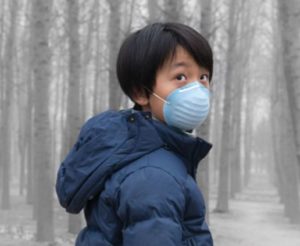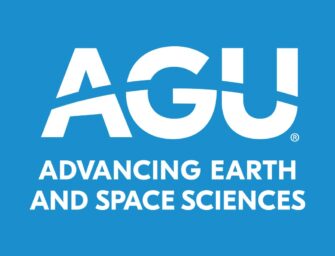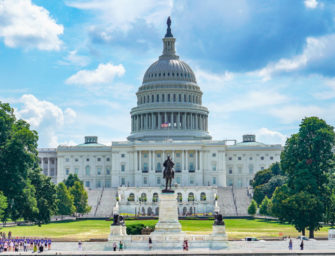The Geoscience & Society Summit: Bridges to Global Health, Resilience & Sustainability
 The threats of climate change, growing water and energy demands and threats to human health are posing unprecedented challenges to human populations across the globe. Effective solutions to these challenges will require the expertise of the science community, in collaboration with policymakers, NGOs, non-profit organizations and corporations.
The threats of climate change, growing water and energy demands and threats to human health are posing unprecedented challenges to human populations across the globe. Effective solutions to these challenges will require the expertise of the science community, in collaboration with policymakers, NGOs, non-profit organizations and corporations.
It is this desire for cross organizational solutions that led AGU, in partnership with Geology in the Public Interest, the Bolin Centre for Climate Research at Stockholm University, and other partners to develop a new meeting concept that positions the geoscience community as an active participant in solving some of the world’s greatest challenges. The Geoscience & Society Summit: Bridges to Global Health, Resilience & Sustainability (https://connect.agu.org/gss/home) is designed to foster collaboration among attendees of various backgrounds and generate innovative and actionable ideas through a series of facilitated workshops.
The event will be held in Stockholm, Sweden on 18-21 March 2019 and is being hosted by the Bolin Centre at Stockholm University. We are pleased to welcome world-renowned professor of economics and leader in sustainable development, Dr. Jeffrey Sachs*, director of the Center for Sustainable Development at Columbia University, and political scientist, Dr. Jane O’Meara Sanders, founder and Fellow of the Sanders Institute, as co-keynotes for this game-changing event.
The Summit’s interactive format is aimed at spurring dialogue between the geoscience community and users of scientific information to co-develop potential solutions to global challenges that encompass the following topics:
- Energy and minerals sustainability
- Climate change and ocean and habitat health
- Water and agricultural production and sustainability
- Hazards, human health, and social justice
Why is this meeting unique?
The landscape of scientific meetings is constantly changing and evolving and AGU’s Meetings Committee is committed to keeping ahead of the curve. With the Geoscience and Society Summit, AGU is experimenting with a new concept to build on the successful models we have produced with our Fall Meeting, Chapman Conferences, and others, to design an interactive experience where discussions are put at the forefront. Through a series of five workshops, participants’ contributions, ideas, and experiences will build the bridges between scientists, policymakers and others, to forge a path to innovative solutions. While our more traditional model of scientific conferences will remain the backbone of AGU meetings, we hope the Summit offers a new arena for our scientist to explore, expand, and learn new ways to approach and apply their science.
Who should attend?
To enhance the conversations, we are targeting leading experts and stakeholders across the globe, from academia and research institutions, corporations, funding organizations, government agencies, and indigenous communities to attend. This is not the time nor meeting for passive participation. We are calling on all attendees to come ready to converse, network, and debate, with their fellow leaders. In addition to the workshops, the Idea Expo will serve as a convening center for participants to connect and showcase their work outside of the formal workshops. In the Idea Expo, attendees who submitted an Innovation will have the opportunity to present some of their activities in more detail.
What are the innovations?
Last fall, AGU put out a call for proposed or implemented ideas or concepts that would be relevant to this meeting. The accepted innovations are now viewable on the Summit website. These innovations range from specific community projects (i.e. flood adaptation plan), to novel approaches to conducting science (i.e. citizen science, social media, other forms of data), to examples of transdisciplinary solutions that address several societal issues (i.e. green building design). With the variety of differing innovations, participants will enter the meeting equipped with potential pathways on how to converge efforts, build bridges, and co-develop solutions.
What outcomes will result from the Summit?
Attendees will benefit from increased connection not only with fellow scientists in attendance, but also from fostering new relationships with members of the non-scientific community. Aside from bringing the global community together, we hope to publish a white paper that will highlight the creative solutions, innovations, and case studies that were generated throughout the process of the Summit.
*Dr. Sach’s will be streaming live into the meeting.





Thanks so much for the recognition for this unique opportunity.
We hope that the time invested in this gathering will be spent identifying specific problems and working with diverse colleagues to propose cooperative actions toward solutions. Geoscience should be the lead discipline in organizing governments, industry, academia, and local-community populations for positive change.